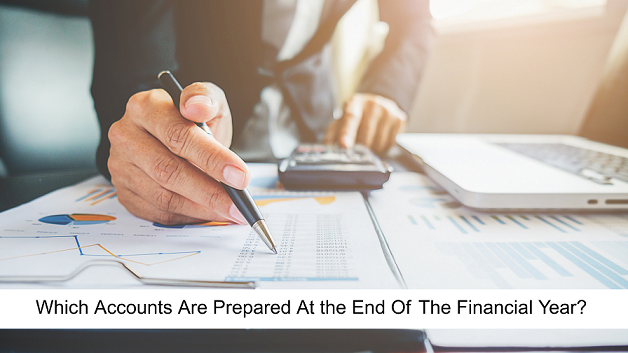
The end of the financial year is an important time for all UK businesses. It marks 12 months of tracking money received and spent. Accounts are prepared Balance sheet, profit and loss account, notes to the accounts, directors’ report, and sometimes a cash flow statement at the end of the year.
Having these accounts correct helps follow the law, calculate taxes, and understand how well the business is doing.
Whether you are a business novice or experienced, knowledge of these year-end accounts helps you remain on track and ready for what is ahead.
The year end of finance is when the accounting year for a company is brought to a close. It typically runs for 12 months from the incorporation date decided by the business or a fixed financial period.
A company’s financial year may not match the UK tax year (6 April to 5 April). At the end of their financial year, companies prepare statements showing all financial transactions during that period.
At the end of the financial year, companies prepare different financial and accounting reports. The exact reports depend on the company’s size and type, but usually include:
The balance sheet is a snapshot of what a business owes and possesses on the same date that the financial year ends. It includes a list of:
This statement is important in determining the worth and financial condition of the company at year's end.
This account accumulates the financial performance of the company for the entire financial year. It records:
It determines how good or poorly the company did, profitability or losses during the year.
There are further details and explanations after the balance sheet and profit and loss account. They comprise:
The notes bring in transparency and insight, making it easy to comprehend figures without.
Most limited companies are required to prepare a directors' report as part of their accounts. This report summarises:
It helps stakeholders evaluate the direction and governance of the company.
Although not required in every instance, a cash flow statement may be included. This report depicts:
It is most effective for cash management and asset monitoring on an effective basis.
Preparing accounts at the financial year end is not only a legal requirement for limited companies but also an important tool to assess business health. These accounts serve several functions:
Before completing these accounts, companies ensure that all accounting records are complete and correct at the end of the financial year. This involves:
These steps correctly post income and expenses to the correct financial year, giving a true and accurate reporting position.
When available, the year-end accounts must be filed accurately:
Late filing can result in automatic penalties. Early organisation and prompt filing are therefore strongly advisable.
At the end of the financial year, UK companies submit a suite of accounts including the balance sheet, profit and loss account, notes to the accounts, directors' report, and possibly a cash flow statement.
A clear understanding of what accounts are to be prepared and the deadlines ensures trouble-free financial year end routines for any company.
If you are an accountant or a business person with year-end account concerns, PHS Associates is here to help. We offer individualised help to prepare accurate year-end accounts according to legal requirements and within deadlines.
Contact PHS Associates at 0208 8611685 or email info@phs-uk.co.uk.
Frequently Asked Questions